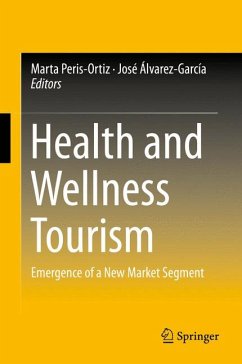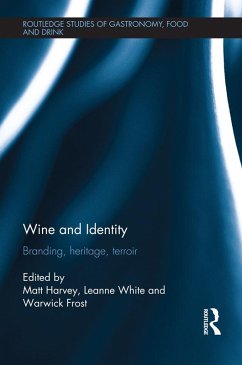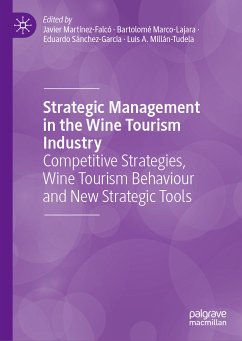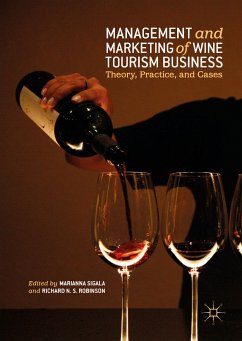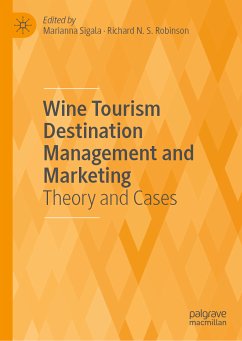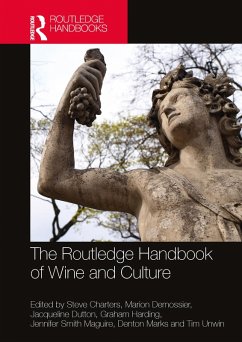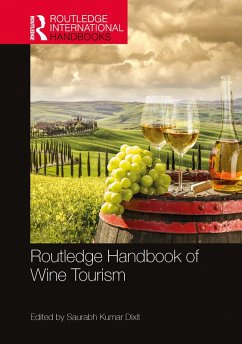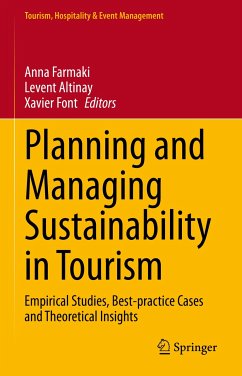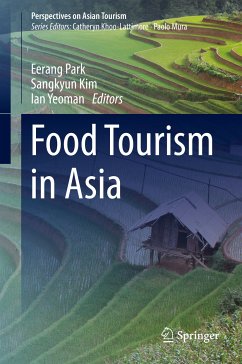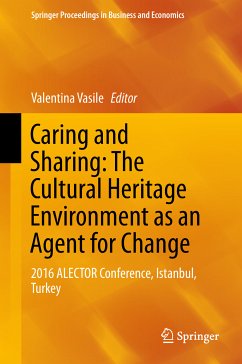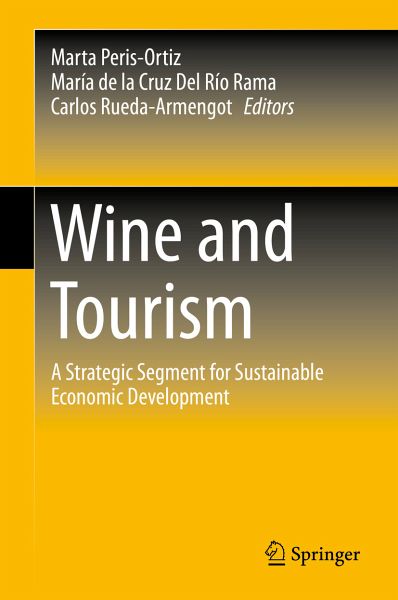
Wine and Tourism (eBook, PDF)
A Strategic Segment for Sustainable Economic Development
Redaktion: Peris-Ortiz, Marta; Rueda-Armengot, Carlos; Del Río Rama, María de la Cruz
Versandkostenfrei!
Sofort per Download lieferbar
72,95 €
inkl. MwSt.
Weitere Ausgaben:

PAYBACK Punkte
36 °P sammeln!
The aim of this book is to show how wine tourism can be used as a model for sustainable economic development, driving economic growth and social development in some locations. It will explore the interaction between tourism and viticulture in wine tourism destinations, while also explaining some of the repercussions of these activities. This book covers various topics including regional development, environmental management, sustainable viticulture, quality management in wineries and wine tourism routes among others.Wine tourism, which combines two important yet distinct economic activities (i...
The aim of this book is to show how wine tourism can be used as a model for sustainable economic development, driving economic growth and social development in some locations. It will explore the interaction between tourism and viticulture in wine tourism destinations, while also explaining some of the repercussions of these activities. This book covers various topics including regional development, environmental management, sustainable viticulture, quality management in wineries and wine tourism routes among others.
Wine tourism, which combines two important yet distinct economic activities (i.e., tourism and viticulture), has recently emerged as a new tourism product driven by tourists' search for new experiences and wineries' need to diversify their businesses and seek new revenue streams to boost sales. This new form of tourism, which typically takes place in rural areas and which combines wine production with tourist activities, is becoming important for such regions by providing a complementary income source. It provides a model for sustainable economic development for these regions, which for various reasons may otherwise struggle to develop.
Featuring cases and business implications from various locations, this book provides an important source of knowledge-both theoretical and practical-suitable to academics, scholars, researchers, and practitioners in the tourism sector and the wine industry.
Wine tourism, which combines two important yet distinct economic activities (i.e., tourism and viticulture), has recently emerged as a new tourism product driven by tourists' search for new experiences and wineries' need to diversify their businesses and seek new revenue streams to boost sales. This new form of tourism, which typically takes place in rural areas and which combines wine production with tourist activities, is becoming important for such regions by providing a complementary income source. It provides a model for sustainable economic development for these regions, which for various reasons may otherwise struggle to develop.
Featuring cases and business implications from various locations, this book provides an important source of knowledge-both theoretical and practical-suitable to academics, scholars, researchers, and practitioners in the tourism sector and the wine industry.
Dieser Download kann aus rechtlichen Gründen nur mit Rechnungsadresse in A, B, BG, CY, CZ, D, DK, EW, E, FIN, F, GR, HR, H, IRL, I, LT, L, LR, M, NL, PL, P, R, S, SLO, SK ausgeliefert werden.



